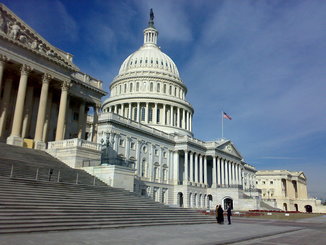A new legislative provision making its way through Congress highlights just how little most Congressmen know about financial and banking stability. The changes that Congress wants to make are being touted as beneficial to small banks, but they could end up making the banking system much less stable and lead to more bank failures in the future.
While most people think of deposit insurance as a protective measure for depositors, it is actually more beneficial for banks. Since bank deposits are allegedly protected by the government’s deposit insurance fund, banks can afford to be riskier with their lending because the government will step in to make depositors whole in the event that too many bank loans go bad. That is the moral hazard brought about by deposit insurance, which makes the banking system far riskier than it already is.
Congress is now taking steps to allow smaller, undercapitalized banks to sidestep limits on deposit insurance as a way to encourage more deposits to flow to small banks. Currently the Federal Deposit Insurance Corporation (FDIC) limits the amount of insurance coverage per account to $250,000. Congress is looking to get around that limit by making it easier for smaller banks to split up large deposits from wealthy clients, allowing them to make an end run around the $250,000 limit.
As many people know, the federal Deposit Insurance Fund doesn’t actually have enough money in it to pay back all supposedly insured accounts. In the event of a systemic banking crisis, the FDIC will have to resort to borrowing money from the US Treasury, meaning that ultimately it will be taxpayers who will be on the hook for bailing out bank depositors in the event of a severe financial crisis.
While that may be good news for the fortunate depositors who will be bailed out in the event of a financial crisis, it isn’t good news for taxpayers. And it is one more way that Congress is contributing to the increasing instability of the financial system. By giving in to pressure to create more favorable business conditions for small banks, Congress could be contributing to the destabilization of smaller banks. All it takes is a few small or mid-size banks to start failing before a bank run begins to develop. And in the age of online banking, those bank runs are likely to be “silent” but deadly.
Investors need to remain aware of the overall stability of the financial system. It’s one thing to see bubbles in the housing market and the stock market, but investors who look at the economy more broadly can identify many factors that can affect economic stability. And that makes it all the more important for investors to keep their assets free from being susceptible to the instability of the banking and financial system.
Gold is one asset that keeps investors protected from banking system instability, as it can protect investors’ assets from inflation and has acted as a hedge for centuries. Investors who understand the fragility and instability of the banking system and the inability of the government to counteract that instability would do well to look into investing in gold.
This article was originally posted on Goldco.





